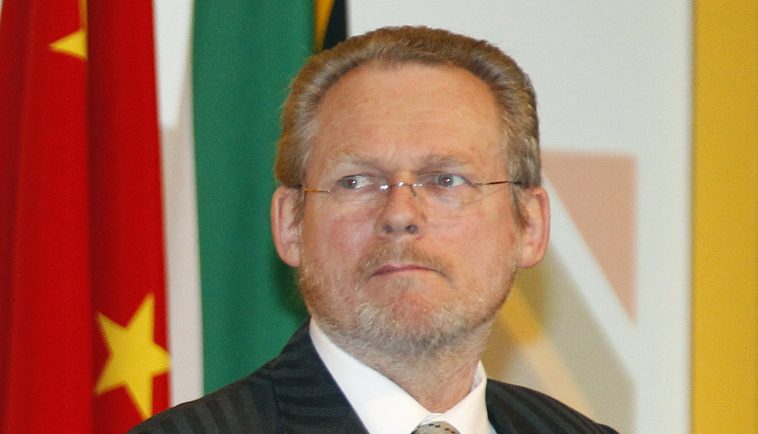South Africa faces an electricity crisis due to years of corruption, looting and mismanagement of Eskom. Some argue it is also due to a refusal to diversify the energy sector. The electricity problems are affecting all South Africans, with people not knowing whether the lights will stay on and many businesses under pressure.
Rob Davies, who has been trade and industry minister since 2014, is not running away from the problem. He tells The Africa Report: Eskom was “particularly badly affected by state capture and corruption. And this not only meant that money was lost but it meant that capacity to run a utility like that was undermined, weakened. The best people left. Things like maintenance weren’t properly done. And we see that the chickens have come home to roost now.”
How have Eskom’s failures impacted the economy?
“I have no doubt that the first quarter figures for this year are not going to be good. It’s going to have a negative, dampening impact – I’m sure – on manufacturing. I know factories are not operating at full capacities. So, of course, there is a tough piece of work to be done, and I think that [with] the team that’s there now – public enterprises minister [Pravin] Gordhan and the board of Eskom […], there are some big structural issues about how electricity generation, transmission and distribution are going to be organised differently in the future.”
Factories are not operating at full capacities. There is a tough piece of work to be done
Shadow minister of public enterprises Natasha Mazzone of the Democratic Alliance is not convinced: “This is a crisis. We have an already weak economy, and there is no clear plan to fix the mess – from the president to Pravin Gordhan to Eskom. We are told to wait and to wait. We would like to establish an ad-hoc committee on Eskom and for parliament to re-convene urgently,” Mazzone told a talk radio station. “People won’t be able to dodge the bullet. Everyone has to answer to parliament and tell the truth.” Eskom has indicated that there will be no blackouts in the country this week due to the electricity situation improving.
A weak Zimbabwe is bad news for South Africa
Davies is also keeping a close eye on South Africa’s northern neighbour Zimbabwe. He was part of the high-powered delegation led by President Cyril Ramaphosa to Zimbabwe in early March to discuss trade ties. Trade between the two countries is tilted in favour of South Africa, which exported goods worth more than R30.8bn ($2.2bn) to Zimbabwe in 2018, according to figures released by the presidency. Zimbabwe’s exports to South Africa were worth just R3.6bn.
Addressing the third session of the Zimbabwe-South Africa Bi-National Commission in Harare, foreign affairs minister Sibusiso Moyo said a weaker Zimbabwe was a threat to South Africa’s economy. “A prosperous Zimbabwe makes for a prosperous South Africa and vice-versa,” Moyo said. Economists point out that South Africa’s economy was previously hit in the early 2000s when contagion from events in Zimbabwe heightened risk aversion among investors – both local and foreign.
If our neighbour has a meltdown large numbers of people from Zimbabwe will find their way into South Africa
Davies says: “I think that point is pretty well established, that if our neighbour has a meltdown – or even short of a meltdown, if it has a worse performance in its economy than now – we can expect that large numbers of people from Zimbabwe will find their way into South Africa. […] Another implication is a loss of markets – all kinds of things that we do not want to see. We have to find ways that we can work to assist Zimbabweans as they are now trying to take decisions which are going to turn their economy around. And we need to find ways to help them.”
Will it be a financial bailout?
“I don’t think this is a question of somebody bailing out somebody with large sums of money. We don’t have large sums of money, but I think we can try to assist them in their engagements with the Paris Club [including countries like Russia, Britain and France], which is a creditor, and also with international financial institutions.”
Zimbabwe’s dollar doldrums
“If you are tied to the currency of the strongest economy in the world, you’re not going to be competitive on anything. So it’s obviously important that they do introduce a currency, but it’s having issues,” Davies says. “There are many issues about certainty. Something I shared with them is that investors respond when you can introduce certainty – if you keep chopping and changing, you are going to get less of a positive reaction.”
Davies says he believes that Zimbabwe’s President Emmerson Mnangagwa and his team are trying to do a number of things that are moving to the right direction: “They need to be encouraged to do that, and I’ll support it where we can.”

